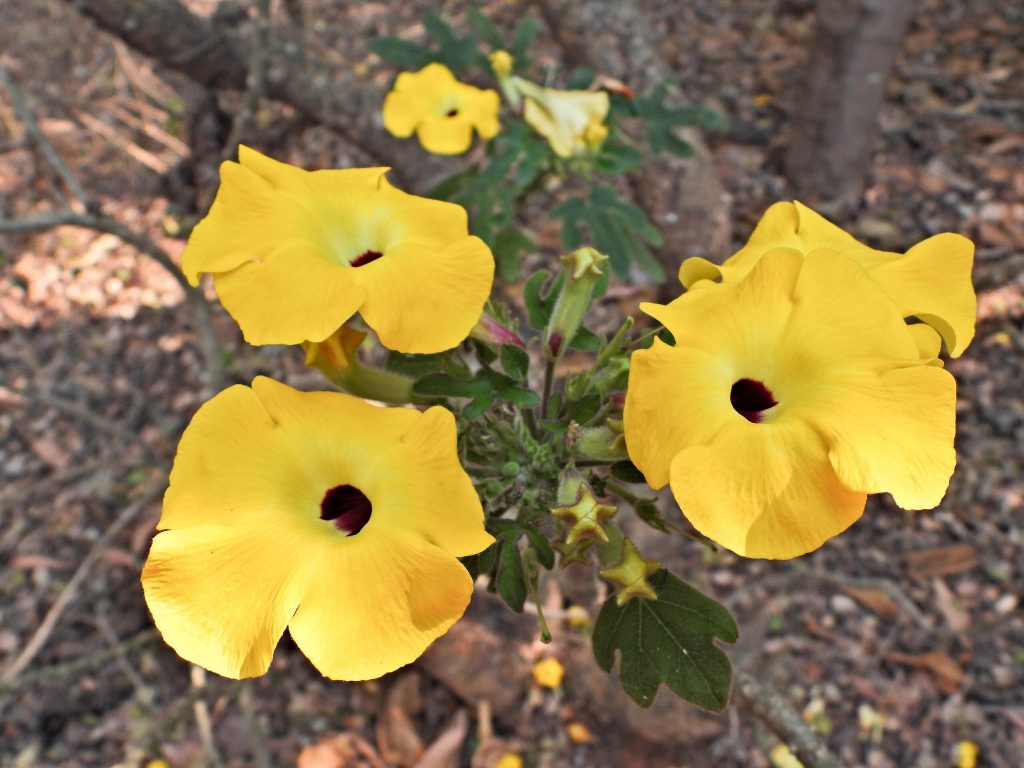The miracle of the mousetrap

The name mousetrap refers to the seed pods of a Malagasy group of small trees named Uncarina (family Pedaliaceae). Their fruits are covered with sharp spines like barbed fish hooks. Once attached to cloth, shoes or skin, they are very difficult to remove and quite often small injuries result. Particularly newcomers are victim and several times we had to remove clusters of seed pods from the limbs, belly or testicles of our dogs. The interesting thing is that we never saw lemurs having such problems. They may be aware of the danger or have a method to remove them.
The process of reproduction of Uncarina is interesting. First, specific beetles chew up the anthers to get access to the pollen and take care of fertilization. Second, we never observed spontaneously germinating Uncarina seeds at Zazamalala. Botanists advised us to remove the seeds from the extremely tough fruit coat with 2 pincers, keep them in warm water for at least 3 days and then wait patiently for germination. Until today, all our young Uncarina plants come from cuttings.
Currently, the so-called Faretra becomes rare in the wild and most species from the south-west and western parts of Madagascar are on the edge of extinction.
Uncarina species are popular ornamentals in horticultural collections because of their beautiful flowers. Most species are large shrubs with a few twisting and turning, somewhat swollen smooth stems, simple heart-shaped to lobed and hairy to velvety leaves on a very long and sticky petiole.
At Zazamalala we have the purple-flowering U. abbreviata, the white-flowering U. leptocarpa, and the yellow to golden-flowering U. decaryi, U. grandidieri, U. leandrii, U. perrieri, U. roeoesliana, and U. stellulifera. Who helps us obtaining the missing species?
Come to Zazamalala and see these interesting plants in their natural habitat!
Zazamalala plants trees to enhance the dry deciduous forest of western Madagascar. We need your help to keep this ecosystem for next generations.